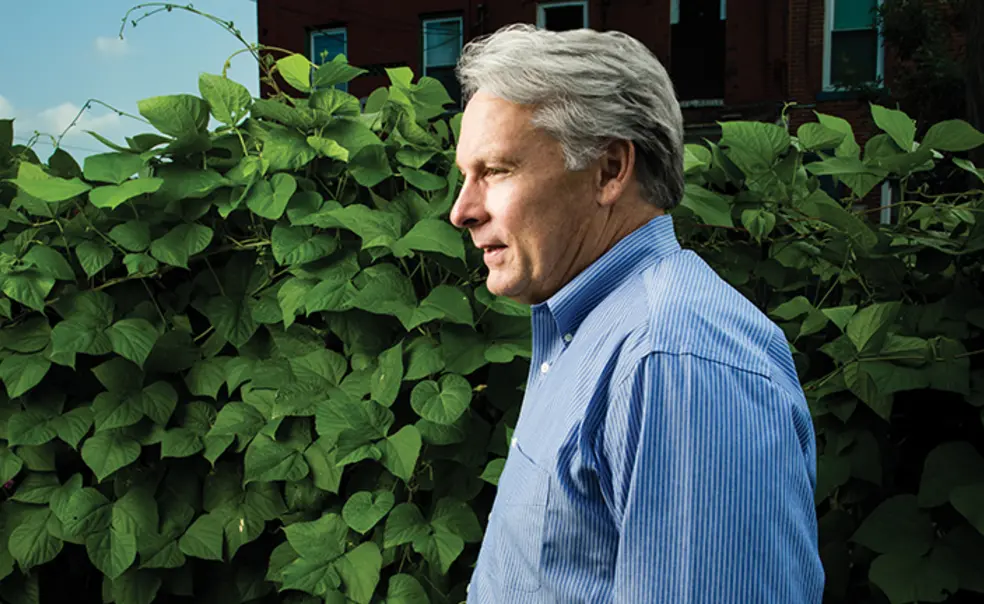Marty Johnson ’81’s Nonprofit Helps Trenton Families Weather COVID-19
‘Dense, high-poverty, inner-city settings are most threatened’
Marty Johnson ’81 is the founder and CEO of Isles, a nonprofit development and environmental organization based in Trenton, New Jersey.
By the time I started Isles with two others 39 years ago, my struggling family and my Princeton research had taught me to believe that residents — including those in tough lower-income settings — had more resiliency and capacity than people thought. Based on that assumption, we eventually distilled our mission down to seven words: more self-reliant families in healthy, sustainable communities.
We took a leap of faith, sensing we could learn how to support that and the universe would support us. Over four decades that faith felt mostly well-placed. Through changing economic and political winds, we pivoted, evolved, and grew. It was a passion for change, not charity. And it works.
Then along came COVID-19. Suddenly, we had to stop bringing people together to solve problems. Instead, we physically separated them. While our job was to connect people to training, ideas, education, capital, redevelopment projects, and each other, we soon realized that they first had to survive, as did we.
In our hometown of Trenton, as of the end of April, COVID cases are still increasing. Dense, high-poverty, inner-city settings are most threatened. But what should we do about it?
To support the thousands we serve each year, we had to pivot fast. First, we had to provide training and equipment to keep our staff and volunteers safe. We needed a common IT platform and new accounting systems.
It became clear as we talked with our tenants, students at Isles Youth Institute, green-job trainees, and so many others that mainstream-media messaging was not getting to the communities we serve. We had to educate, but we also had to provide more tools, like face masks. My colleague Cherie Hooks, who normally helps families test and clean up homes that are poisoning kids with lead, started sewing cloth masks at home and delivering them to families. Andre Thomas, who normally trains contractors and employees to become certified energy-efficiency and environmental-cleanup experts, started delivering food to our healthy homes. Tenants in our affordable housing lost work and could no longer afford rent. They needed access to services, too.
Teachers at Isles Youth Institute had to move education online, using a Google education platform. Thirteen students needed laptop computers, so we provided them. They and their families were hungry, so we expanded our food pantry.
It’s not all crisis management. Some changes will teach us new ways forward. Isles is developing online and phone-based coaching for families who want to buy a home, fight foreclosure, and get their financial house in order. In two weeks in April, two families closed on new homes, online! Isles just had a seedling giveaway, supporting hundreds of families growing their own food in 70 community gardens. Our crews clean and green neighborhood parks, too, planning for when families can leave their homes.
Time will tell if people care enough to fund good organizations through this crisis. Isles applied for Payroll Protection Program funding within 90 minutes of the first opening. We were denied. Of dozens of nonprofits represented at a meeting then, only three had received PPP funding. We did succeed in the second round.
So we return to that leap of faith. This era both threatens and teaches us, but it too will pass. Let’s do more than hope — let’s make sure we learn from it.
PAW reached out to alumni who are on the front lines of the COVID-19 crisis or are affected by it in different ways. Read their essays here. Write to us at paw@princeton.edu with your own story.










No responses yet